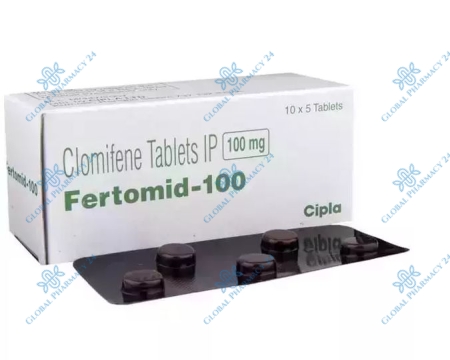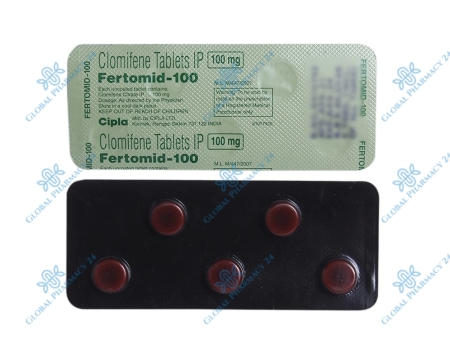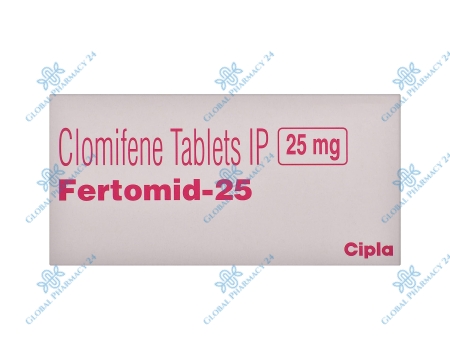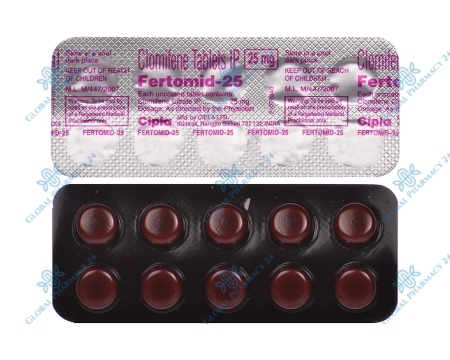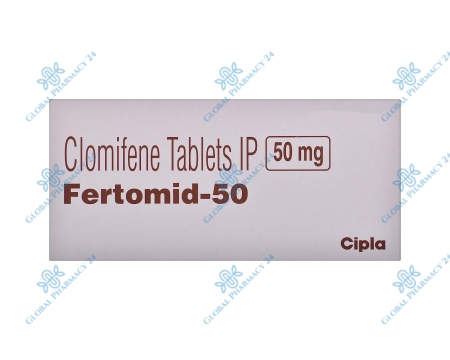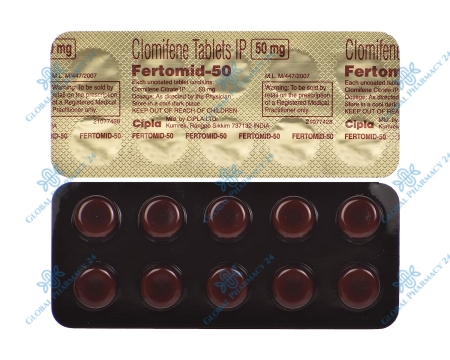| Characteristic | Details |
|---|---|
| Active Ingredient | Clomiphene Citrate |
| Dosage Form | Tablet |
| Recommended Dosage | 50 mg daily for 5 days |
| Duration of Treatment | Varies per individual, typically 5 days within a menstrual cycle |
| Primary Use | Induction of ovulation |
| Side Effects | Hot flashes, stomach upset, bloating, breast tenderness, headache |
Introducing Fertomid: The Fertility Enhancer
Fertomid is a renowned fertility drug designed to enhance ovulation and increase the chances of pregnancy in women struggling with infertility. With its active ingredient, Clomiphene Citrate, Fertomid acts as a selective estrogen receptor modulator (SERM), tricking the body into producing more follicle-stimulating hormone (FSH) and luteinizing hormone (LH), thereby stimulating the ovaries to release eggs.
This medication has become a cornerstone for many fertility treatments, offering hope and success to countless individuals and couples. Its effectiveness in inducing ovulation has made it a first-line treatment for those with specific fertility challenges, such as polycystic ovary syndrome (PCOS) or anovulation.
Unveiling the Fertomid Treatment
Fertomid works by initiating a chain reaction in the body's hormonal balance that encourages the growth and release of mature eggs from the ovaries. This mechanism not only aids in overcoming difficulties with ovulation but also increases the chances of conceiving, making Fertomid a valuable ally in the journey toward pregnancy.
The Mechanism of Fertomid
Clomiphene, Fertomid's active compound, binds to estrogen receptors in the brain, particularly the hypothalamus. This binding prevents estrogen from attaching to its receptor, leading the body to perceive a low level of estrogen, similar to the early menstrual cycle. As a result, the body increases the production of FSH and LH, culminating in ovulation.
Fertomid's Efficacy in Fertility Treatment
Fertomid has proven to be highly effective in promoting fertility, with numerous studies and patient testimonials highlighting its success. Its ability to significantly increase the likelihood of ovulation makes it a preferred choice for many healthcare providers specializing in reproductive health. Patients using Fertomid often report positive outcomes, with a substantial number achieving pregnancy within the first few cycles of treatment.
The success of Fertomid in enhancing fertility is not just anecdotal; it is backed by clinical research. Its effectiveness, especially in women with PCOS or those experiencing unexplained infertility, is well-documented, making it a trusted option in fertility treatments worldwide.
Proven Successes of Fertomid
Real-world evidence and clinical trials alike underscore Fertomid's role in helping thousands achieve their dream of parenthood. Its success rate, particularly among women with certain ovulatory disorders, showcases the potential of this medication to transform fertility treatment outcomes.
Patient Testimonials
Direct quotes from patients who have used Fertomid often highlight its life-changing impact, with many expressing gratitude for the role it played in their journey to becoming parents. These testimonials serve as powerful testimony to the effectiveness and hope Fertomid offers.
Understanding the Use and Dosage of Fertomid
The proper use and dosage of Fertomid are critical for its effectiveness and minimizing potential side effects. Typically, the treatment begins with a 50 mg dose taken once daily for 5 days, starting on the fifth day of the menstrual cycle. However, the dosage may vary based on individual response and specific medical advice. Adhering to the prescribed dosage and schedule is essential for achieving the desired outcome.
It is important for patients to follow their healthcare provider's instructions closely when using Fertomid. This includes undergoing regular monitoring to assess the drug's effectiveness and adjust the treatment plan as necessary. Such personalized care ensures the best possible results while safeguarding against adverse effects.
Administering Fertomid: Recommended Dosage and Schedule
The recommended dosage of Fertomid typically starts at 50 mg daily for 5 consecutive days. Timing and adjustments to this dosage depend on individual responses and the specific guidance of a healthcare professional.
Special Instructions and Precautions
While taking Fertomid, patients should be aware of special instructions and precautions, such as avoiding certain activities that require clear vision if they experience vision-related side effects, and monitoring for signs of ovarian hyperstimulation syndrome (OHSS). It's also crucial to consult a healthcare provider before starting any new medication while on Fertomid.
Weighing the Risks: Potential Side Effects of Fertomid
As with any medication, Fertomid comes with potential side effects, although not everyone experiences them. Commonly reported side effects include hot flashes, stomach upset, bloating, and breast tenderness. While most side effects are mild and temporary, it's important for patients to be informed about them and to communicate with their healthcare provider about any concerns.
Understanding the risks and how to manage them can help patients navigate their treatment with confidence. For most, the benefits of using Fertomid far outweigh the potential side effects, especially when monitored closely by a healthcare professional.
Common Side Effects of Fertomid
The most commonly reported side effects of Fertomid include hot flashes, bloating, abdominal discomfort, and breast tenderness. These effects are typically mild and transient, resolving without the need for discontinuation of the medication.
FAQs Fertomid
What is Fertomid?
Fertomid is a medication used to treat infertility in women. It contains clomiphene citrate, which helps stimulate ovulation.
How does Fertomid work?
Fertomid works by inducing ovulation in women who are having trouble conceiving due to irregular or absent ovulation.
What are the common side effects of Fertomid?
Common side effects of Fertomid may include hot flashes, abdominal discomfort, nausea, and breast tenderness. However, it's important to consult with a healthcare professional for personalized advice.
How long does it take for Fertomid to work?
The timeframe for Fertomid to work can vary from person to person. Some women may ovulate within a few days to weeks of starting the medication, while others may require longer treatment durations.
Can Fertomid be used by men?
No, Fertomid is specifically designed for use in women to help with ovulation issues. It is not intended for use by men.


